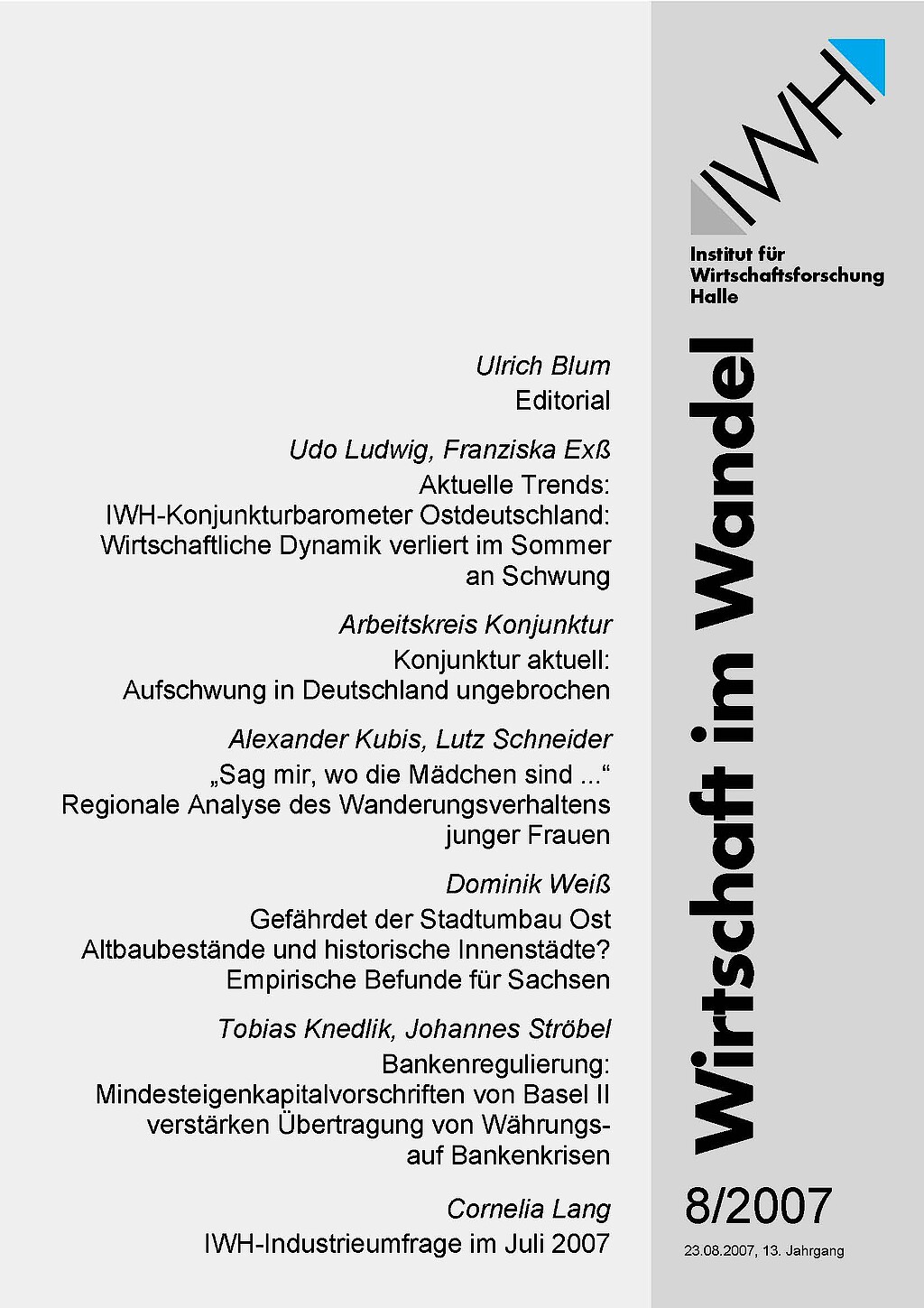„Where Have All the Young Girls Gone …?” Regional Analysis of Young Women’s Migration Behavior
Alexander Kubis
Lutz Schneider
in: Wirtschaft im Wandel,
No. 8,
2007
Abstract
Der vorliegende Beitrag untersucht die Muster sowie die Determinanten des Wanderungsverhaltens junger Frauen im Alter zwischen 18 und 30 Jahren. Auf NUTS-3-Ebene, d.h. der Ebene der Kreise, werden die Ströme der gesamtdeutschen Binnenwanderung des Jahres 2005 analysiert. Es zeigt sich, daß die Regionen mit einem ausgesprochen negativen Wanderungssaldo junger Frauen in der ostdeutschen Peripherie zu finden sind, während die westdeutschen Agglomerationen, aber auch die großen Städte in den Neuen Bundesländern von Zuzügen dieser Gruppe profitieren. Die Analyse der Bestimmgründe der regionalen Wanderungsströme junger Frauen belegt die Signifikanz der ökonomischen, familien- und bildungsbezogenen Wanderungsmotive. Im allgemeinen wandern junge Frauen in Regionen mit guten Einkommens- und hochwertigen Erwerbsmöglichkeiten, wobei die Vereinbarkeit von Familie, Partnerschaft und Beruf im genuinen Interesse dieser Gruppe zu liegen scheint. Ferner zeigt sich eine ausgeprägte Anziehungskraft von Regionen mit erstrangigen Bildungsangeboten. Dabei generiert diese Bildungswanderung nicht nur einen kurzfristigen, sondern nachhaltig positiven Effekt auf die regionale Wanderungsbilanz. Dies gilt vornehmlich für Regionen, in denen nicht nur Studienplätze vorhanden sind, sondern ebenso Arbeitsfelder für hochqualifizierte Hochschulabsolventinnen. Mit Blick auf mögliche Handlungsoptionen angesichts ausgeprägter regionaler Wanderungsverluste belegt die vorliegende Studie erstens die Bedeutung von Maßnahmen der Wirtschaftsförderung, sofern diese der Verbesserung der regionalen Erwerbs- und Einkommenschancen dienen. Zweitens scheint der Ausbau frauenspezifischer Bildungsangebote ein geeignetes Mittel zu sein, um die Anziehungskraft einer Region für junge Frauen nachhaltig zu erhöhen. Drittens deuten die Ergebnisse darauf hin, daß die Vereinbarkeit von Familie und Beruf eine Stellschraube darstellt, welche die Zuwanderung junger Frauen stimulieren kann.
read publication





